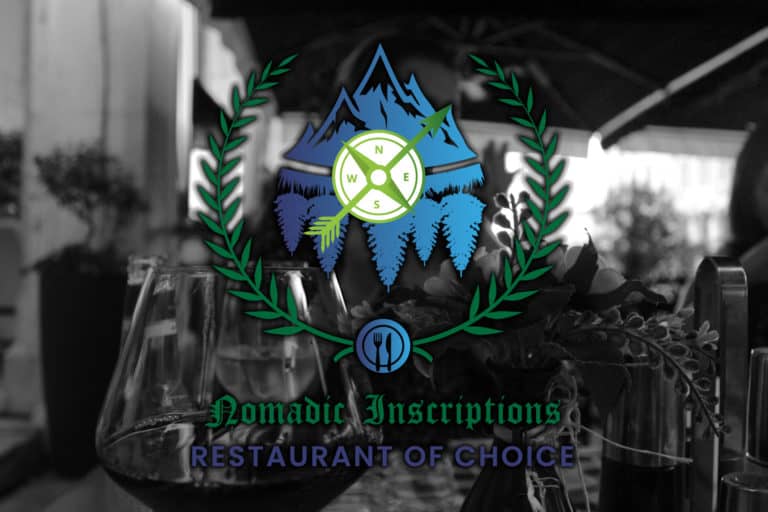Contents of Post

After having written about what ADHD is earlier this year, I changed my mind about a dozen times about how I wanted to kick off this year’s Mental Health Awareness Month. Do I start with one of the things that have been requested? Something such as “How To Properly Interact With Someone Who Has ADHD” (They said “deal with and cope” instead of interact, which I found rude). Perhaps it would be better to stay on brand? Go with something about tattoo therapy, mental health and travelling, or something along those lines. Then it hit me like a train. Rejection Sensitive Dysphoria is the obvious answer. That’s where we need to start.
Why Was Rejection Sensitive Dysphoria The Obvious Answer?
I know that at this point it may not seem like it is. Yet as the month continues, I assure you that it’ll make sense. Yet, let’s start with the easiest answer. Some other posts coming out this month have a high chance of not making sense without this one. If I were to mention it a bunch, but people don’t understand what it is, then we’ve lost people.
This brings me to another massive reason. The amount of knowledge people have about rejection sensitive dysphoria is pathetic. It’s now due to a lack of information either. Hell, ADDitude Mag has a bunch of articles about it. So, why do I feel the need to write something? Primarily because there are people in my life that claim to be “close” and to care. Yet, they haven’t bothered to even look it up, much less try to understand it.
The third reason is that every time I try to explain it, I run into one of two walls. The first is that depending on how in-depth I go, I feel like I’m sounding absolutely f@#king insane. The second wall appears when I don’t go into the insane-sounding level of detail. It’s the, “Everybody feels that sometimes.”, “Rejection sucks for everyone.”, “It’s really not that bad, just get over it.”, Etc, etc. Quite frankly, I’m sick of how much it gets belittled, and often my feelings are invalidated by others. Therefore, it’s the obvious place to start.
What Is Rejection Sensitive Dysphoria?
There is an easy answer and a hard answer. The easy answer is to use the basic definition of it.
The Easy Answer
Here are two variations of the easy answer:
1. Rejection sensitive dysphoria (RSD) is when you experience severe emotional pain because of a failure or feeling rejected. This condition is linked to ADHD, and experts suspect it happens due to differences in brain structure. (Cleveland Clinic)
2. Rejection sensitive dysphoria (RSD) is extreme emotional sensitivity and pain triggered by the perception that a person has been rejected or criticized by important people in their life. It may also be triggered by a sense of falling short—failing to meet their own high standards or others’ expectations. (ADDitude Mag)
Yet, I would argue that these easy and basic “definitions” don’t really define it. It’s not hard for me to see how someone would look at that and think, “Sooo… What everyone feels?” Or “Oh, so it’s just another ADHD thing.” Which, by the way, both thoughts are wrong.
I’ll start with the latter of the thoughts. After all, the former requires a long and hard answer. It’s true that ADHD is basically synonymous with Rejection sensitivity. It’s also true that almost 100% of people with ADHD have rejection sensitivity. However, Rejection Sensitive Dysphoria, or RSD, isn’t “just another ADHD thing”. It can be a problem/disorder/whatever you want to call it all on its own. It can also be a comorbidity, or coexisting condition, of a list of other things.
So, what about the former, though?
The Hard Answer
It’s hard to give any one definition for RSD. There are a lot of similarities, but overall everyone experiences it differently. Sometimes, it’ll be experienced differently by a single person. In fact, ADDitude compiled the answers of what RSD feels like to different people.
So since I can’t give a concrete “one size fits all” answer, I’ll try to explain what it feels like to me.
My Experience With Rejection Sensitive Dysphoria
Most of the time, it starts with a squeezing sensation and a pit in the stomach. My chest will get tight, it’ll feel like someone has their fingers around my heart and is starting to squeeze. The pit turns into this nausea that puking doesn’t help. Then, the shame spiral starts and I start telling myself the worst things people have said to me. Here are just a few of uncountable more:
“Why am I never good enough?”
“Why can’t I do anything right?”
“What’s wrong with me that no one likes me?”
“Why am I such a disappointment?”
“What am I doing wrong?”
“Am not good enough. Why am I never good enough?”
“I don’t ever do enough. Why is nothing ever enough?”
You get the idea. I would blame myself, and think myself inadequate and undeserving of love. This always sours my mood for a time. I get a bit depressed. Maybe it’s only for an hour, perhaps a few days.
Yet, other times it shows face as a white-hot rage. Sometimes it’s random why this one happens. However, when someone won’t stop pressing me, making me dwell on how I feel and what started the feeling, it also gets set off. It’s seldom that the rage faces outwards; rather it’s usually towards myself, fostering a lovely little pit of hatred.
Frustrating Examples Of What Sets It Off
Whichever reaction it is, it’s always laced with a deep seeded humiliation, both during and, even more so, after. I’ve spent my entire life dealing with this. What people don’t realize is this can happen with failure, rejection, or even just the perception of such.
For example, for most of my life, I would think people were talking about me or laughing at me. Side glances or smirks made me self-conscious, even from strangers.
The older I got, the more I preferred making spontaneous last-minute plans. Something that didn’t bother most of the people that I considered friends. Yet, things were different in some of the places I moved to. Some of the places that I ended up in were, for some odd reason, adamantly against spontaneity and last-minute plans. Furthermore, a portion of those people seemed to plan out every single moment of their lives. It’s one of the things that has made living in Austria difficult for me.
It was a process, attempting to get accustomed to these ways of living. It wasn’t until then that I realized something. Why I didn’t like to plan when I would hang out with friends days or weeks in advance. It seems whenever I try to do so, people flake out, cancel, forget, or postpone. Every single time, it sets off my rejection sensitive dysphoria. Without fail.
So it is that I felt like an outcast long before I became one. Eventually, I just assumed everyone hated me, so I shut the majority of my emotions off. That or just cut people out. Avoiding the pain and anger is easier than trying to deal with it. Emotional dysregulation is great.
Honestly, It’s all horrible, intense, and utterly overwhelming. Yet, those are just the ways in which I know it manifests. Who knows how many more there are that I’m not aware of.
How Do People With ADHD Or RSD Cope With It
From my understanding and experience, as someone with this grows up, they could start to anticipate rejection even when it’s far from certain.
For example, whenever I had to deal with my boss in any job I have ever had, I would get anxious. Even in the jobs where I was the golden employee and would be called in for a promotion, bonus, or congratulations. I would always assume the worst and constantly worried I’d be fired.
With that being said, there seem to be two primary ways in which we cope.
- We become people pleasers.
It’s happened to me. I’ve spent years trying to get along and form relationships with people who don’t give a sh*t. People I have no choice on the fact that they are a part of my life. I tried meeting them on their terms and somewhere in the middle. All to be flat out told there’s no point.
You also see this with masking. How each person gets a carefully crafted personality that they will like.
Honestly, it’s exhausting.
- We stop trying.
It hurts too much, so why bother? If there’s any chance of this happening, then why bother trying? When you can avoid all the pain by not doing it, why try?
I’ll be honest. I’ve done this and am still doing this for many things. It’s horrible, but it’s safe.
- Some people are able to harness this pain, or fear of it, to adapt and overachieve so that they are beyond criticism.
None of these are mutually exclusive. They can all be happening simultaneously, and I doubt any are healthy. ADDitude goes over these much more thoroughly.
So Yeah, That’s Rejection Sensitive Dysphoria
Honestly, think of RSD as imposter syndrome turned up to a 15 on a scale where ten should be the maximum. It sucks and can be crippling at times, but it’s something we have to live with. I tell you, and others, all this just so you can try to understand it. There’s probably someone in your life experiencing it, but understanding it and dealing with it are different things. However, trying to understand rejection sensitive dysphoria is a great step in learning how to interact with people with ADHD
As always, we believe we should live with intention, travel with purpose, and let the world inscribe its stories upon us.
So until next time, stay authentic, stay Nomadic, and let the world inscribe its stories upon you more than you do upon it.




